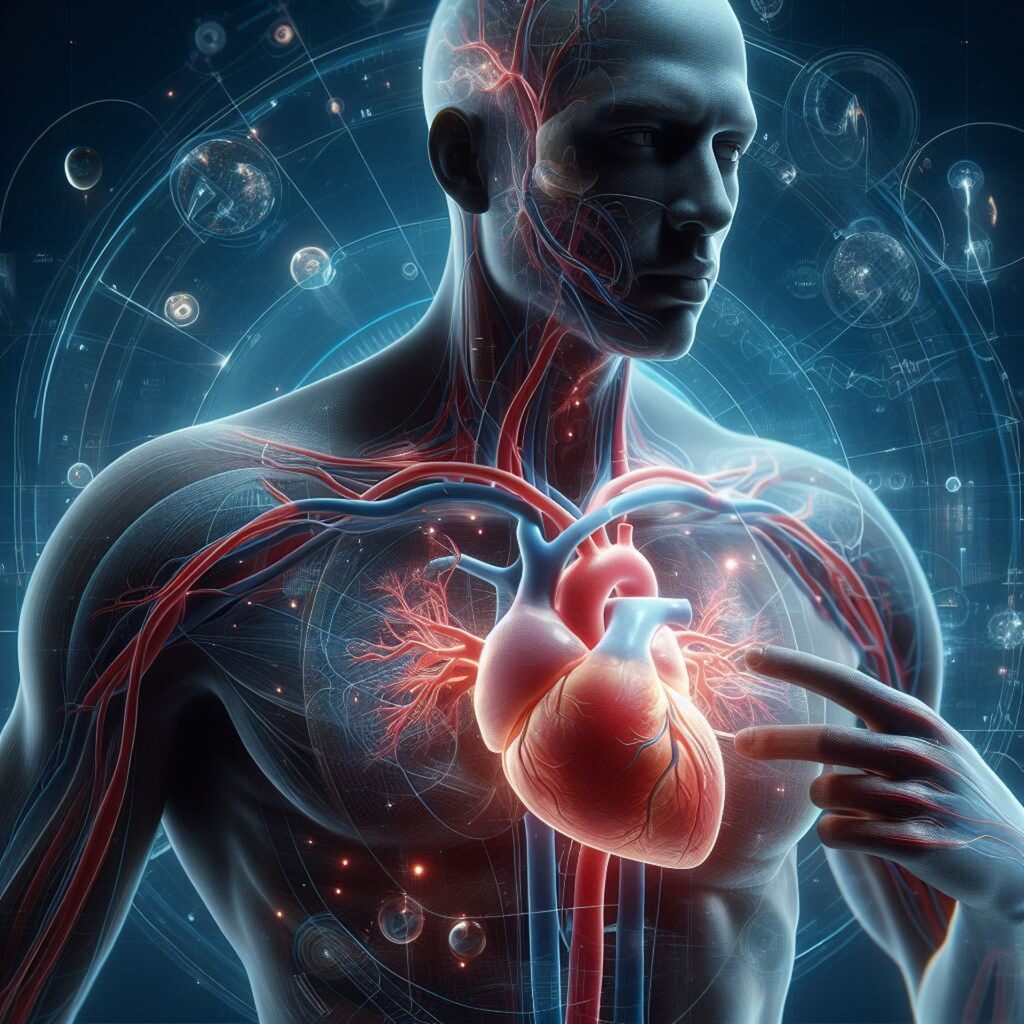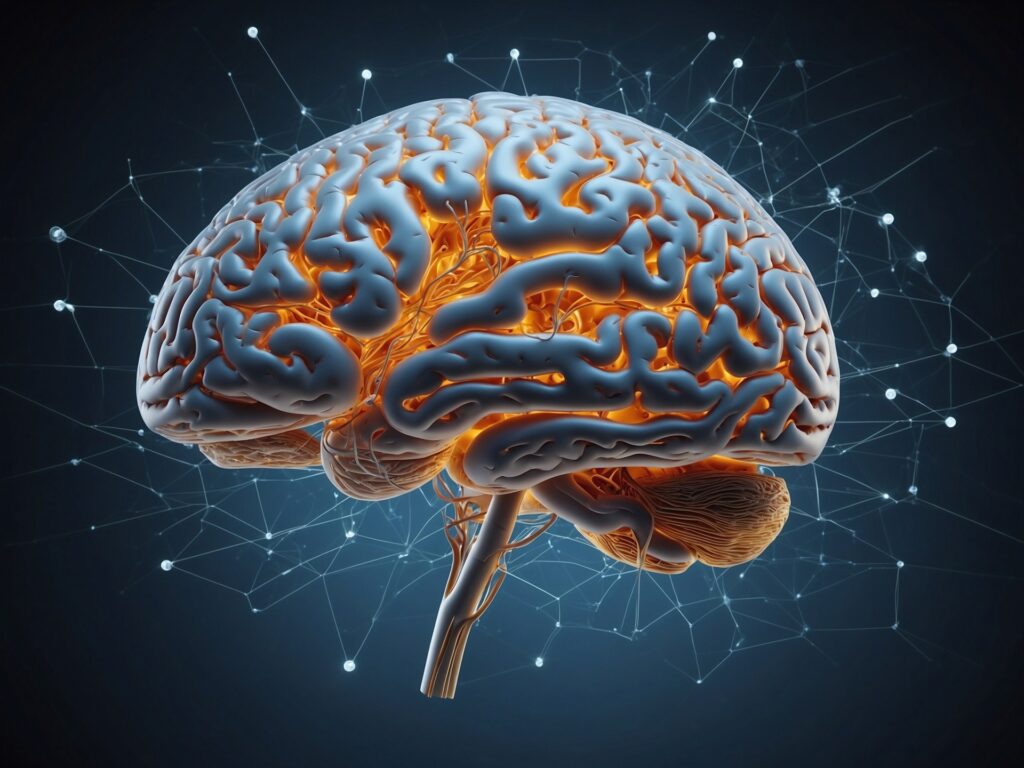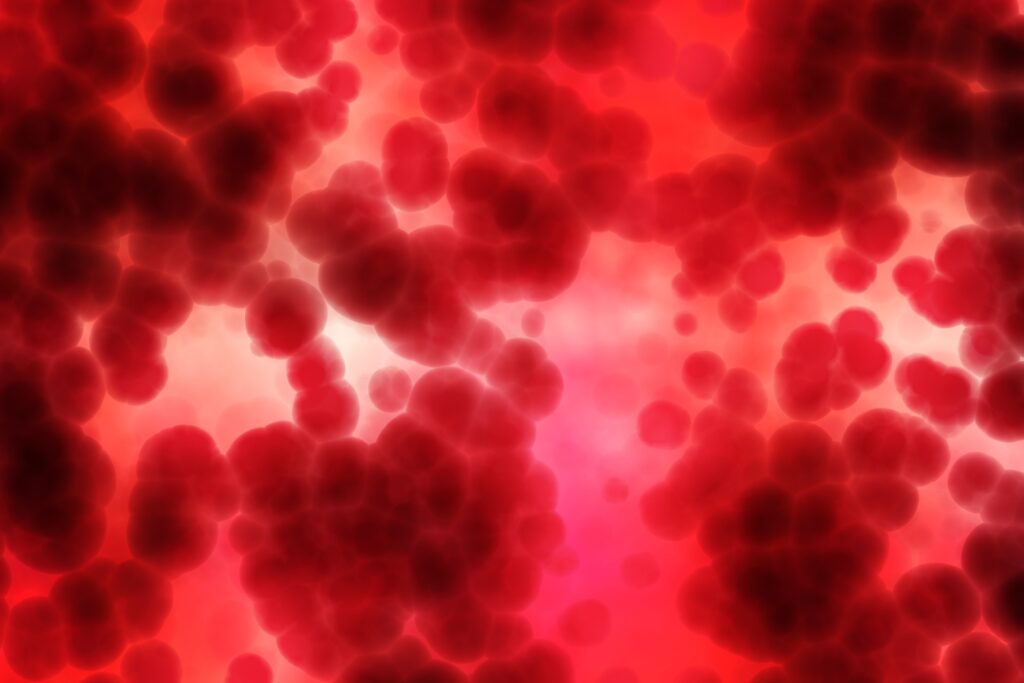Take a moment to stop and breathe. It’s easy to forget your “why” in this rapid, crazy world. Why you want to fix that pesky gut problem, why you want better sleep, why you should care about your body at all – well, that’s why you’re here.
If you need a pick-me-up from feeling flattened by daily life, here’s 7 fascinating reasons to keep choosing the good.
1. The best teamwork in the world: your organs
You are a magnificent feat of engineering. You have eleven miraculous organ systems working in and around each other to sustain the life in you. Let’s see what they all do.
Your skeletal system is the scaffolding on which your body is built. Inside your strong 206 bones is a soft substance called bone marrow which releases mature red and white blood cells into the bloodstream to help you fight infection.
Your muscular system goes hand in hand with your skeleton. Your nervous system regulates your cardiac muscle (your heart) and smooth muscles without you knowing, but you consciously control your skeletal muscles by movement.

Your cardiovascular system is centred around that essential organ – your heart. It pumps oxygen back into your blood and sends it around the body through arteries, veins and capillaries.
Your respiratory system takes in vital oxygen, expels carbon dioxide and interacts with your blood.
Your nervous system is an incredibly complex matrix of neurons that send signals to and from the brain all around your body.
Your digestive system is responsible for breaking down food and delivering it to your body’s needs.
Your urinary system is made up of the kidneys, uterus, bladder and urethra which are designed to release urine. Your bodily waste is excreted here, too.
Your endocrine system produces hormones to regulate a wide range of bodily functions, including the male and female reproductive systems.
Your lymphatic system is the body’s drainage system, carrying excess fluid, proteins, fats and more to lymph nodes.
Your reproductive system is made up of internal and external male and female sex organs designed for the reproduction process.
Lastly, your integumentary system is the system of organs that cover the body including the skin, sweat glands and sensory receptors.
Your body is the ultimate multi-tasker. Every single day.
2. The genius headquarters: your brain
Let’s zoom in on your miracle computer. Every aspect of your being, conscious and unconscious, is governed by this magnificent structure.
Brains are as individual as you: no two people have the same brain anatomy, which makes it even more incredible. The brain’s mysteries are still being uncovered today, but here’s a few of the discoveries that have been made.

Around 60% of your brain is fat and 75% is made up of water so good fats and plenty of water is an essential part of your diet. Your frontal cortex, responsible for higher functions such as decision-making, is around 80% of your brain’s volume.
There’s more. Your brain contains around 100 billion neurons, one for each star of the Milky Way, and 100,000 miles of blood vessels. It’s a universe of its own.
You probably already know that oxygen is brain food. Every time your heart beats, it sends 20-25% of your blood to your brain. Did you know every minute 750-1000 ml of blood flows through your brain? That’s enough to fill a bottle of wine.
Lastly, the average person has up to 70,000 thoughts a day – this may or may not surprise you.
Blown away yet?
3. The fountain of feelings: your emotions
You know, those things that can make life feel like a rollercoaster or a mundane cloudy sky.
The amygdala, the insula and periaqueductal grey are the three structures within the brain most closely associated with emotions.

- It’s the amygdala within the brain that deals with emotions and emotional behaviour. It interprets fear, distinguishes friend from enemy and identifies social rewards.
- The insula is a source of disgust. It receives a status about the body’s physiological state and generates subjective feelings about it – like wrinkling your nose at a bad smell.
- The periaqueductal grey contains receptors for pain-reducing compounds like morphine and helps with pain perception. It is also involved in defence, reproduction, maternal attachment and anxiety.
Feelings grab our attention and if they are strong enough, can oversimplify problems and make it hard to see other perspectives. However, if feelings are invalidated, they become inflamed and we can lose sight of the facts. I think we can all relate.
Taking care of those 70,000 thoughts is far more than fixing how we feel. When we get a handle on our emotions, we’re helping our whole body.
4. Uniqueness in every detail: your body type
Your uniqueness is not only wonderful but holds the key to a healthy lifestyle. Understanding your body type will help you manage your body’s needs and preferences, but even within these categories, you are still different from everybody else.
The Ayurvedic classification of body types is an insightful look into your makeup. The three “doshas” are vata, kapha and pitta. They are present in all of us but each of us has a dominant dosha.
Vata dominant: These people tend to be energetic, creative, fast learners, good multitaskers and always active. Their energy is light, cold, rough, dry, flowing and spacious. They love to gorge on sweets and have their drinks hot. However they can be easily overwhelmed, forgetful, anxious and prone to digestive issues leading to cold hands and unstable moods. They can get dry skin, a dry cough, constipation, lower back pain and menstrual disorders.

Kapha dominant: This group’s energy is stable, steady, slow, heavy and soft. These people are typically caring and think carefully before acting slowly and deliberately. They can be wise, empathetic, rarely upset, romantic and patient. They tend to have a slow metabolism and are prone to weight gain, breathing issues and depression. They also need regular motivation and have a higher risk of heart disease. They can be possessive by holding on to people and things for a long time, leading to greed, attachment and envy.
Pitta dominant: These people tend to be tenacious and their energy is light, hot, sharp, liquid, and mobile. They are athletic, strong leaders, highly motivated, competitive and goal-oriented. They are intelligent, have a quick metabolism, and good circulation. They have a strong appetite and can take food and liquids in large quantities. However, they can be impatient, prone to conflict, always hungry and sensitive to hot temperatures. Lastly, they are prone to acne and inflammation.
Whichever is most dominant in you, your lifestyle needs to suit your body’s needs. Can you see how important your individuality is?
5. Red with vitality: your blood type
Now we’re looking underneath your skin. Your life is in your blood and is a major piece to the puzzle of you.
There are four blood types in people, each with a positive or negative factor indicating the presence (positive) or absence (negative) of the Rh factor.

Your immune system is made up of multiple organs and cells that correspond with your whole body. It defines each cell, bacteria or virus as ‘self’ or ‘non-self’ to protect you and kill the invader. Your unique antigens are your body’s lock and bars, and your natural instinct for survival (D’Adamo, 1998).
Your blood type reveals how your body deals with the world around you. For example, many foods contain the protein lectin. If you consume lectins that are incompatible with your blood type, they will stick to your organs and collect blood cells, causing your body to attack this clump to destruction (D’Adamo, 1998).
Let’s take a look at the types.
Peter D’Adamo wrote a book called Eat Right For Your Type (1998) where he gives a well-rounded picture of the characteristics and requirements of each blood type.
Blood Type O: The Hunter
This is the most common blood type. O types are meat eaters with a hardy digestive tract and an overactive immune system. They respond to stress best with intense physical activity and have an efficient metabolism.
O types should avoid wheat, pulses and grains but are compatible with seafood, iodised salt, liver, red meat, kale and spinach.
O types are characterised by strength, endurance, daring and intuition. They thrive on intense exercise and are depressed without it.
Blood Type A: The Cultivator
These were the original vegetarians. A types have a sensitive digestive tract, a tolerant immune system and respond best to stress with calming actions.
A types should avoid meat, unlike O types. A types store meat as fat and feel sluggish after it. They respond badly to dairy too but respond well to vegetable oils, soya, vegetables and pineapple.
A types have a cooperative nature and tend to be decent, orderly, law-abiding and show self-control. However, they bottle up their anxiety to the point of explosion and tend to come apart in leadership positions.
Blood Type B: The Nomad
B is for balanced. B types have a strong immune system, a tolerant digestive system, flexible dietary choices and respond best to stress with creativity.
B types do not respond well to wheat, sweetcorn, lentils, peanuts or sesame seeds. They prefer green vegetables, meat, liver and eggs.
B types have the best of two worlds: the mental sensitivity of A types and the physical reactions of O types. They tend to live in harmony with less likelihood of confronting others. They are empathetic, intelligent, peaceful and spiritual.

Blood Type AB: The Enigma
This rare blood type is a modern merging of A and B which is less than 1000 years old. They have a chameleon-like response to changing environmental and dietary conditions, a sensitive digestive tract, a very tolerant immune system and respond best to stress with physical verve and creative energy.
AB types should avoid red meat, kidney beans, lima beans, seeds, sweetcorn and wheat. Instead, they should have tofu, seafood, green vegetables, dairy products and pineapple.
AB types are a merger of sensitive and edgy A types with balanced and centred B types. They have a spiritual, flaky nature that embraces life without awareness of the consequences. Unfortunately, their immune system allows in nearly every virus and disease on earth.
Your blood type gives you a clear picture of your body’s unique needs. But most important is listening to your body.
6. Self-healing wonder: Your Immunity
So how good is that immune system of yours? Your internal army is ingenious at fighting diseases down to the last detail.
Watch your cuts heal as your body that makes new skin, repairs blood vessels and removes bacteria. You know how healing feels when your body’s getting over the flu.
What’s more, nature is bursting with remedies waiting to boost your immunity. You just need to know what’s what.
We’ve all had a hot lemon and honey drink when we’re ill. We know that mint cleans your teeth (and your gut). Well, here’s a few more goodies:

- Prunella Vulgaris (Self Heal) stimulates your lymph system, your kidneys and is antiviral.
- Turmeric reduces joint pain, inflammation and improves brain function.
- Ginger helps with bloating and nausea.
- Chamomile improves sleep quality and aids anxiety and depression.
- Cloves have anti-cancer properties.
- Valerian root improves sleep quality.
- Aloe vera contains enzymes, laxative compounds, anti-inflammatory fatty acids and wound-healing hormones.
- Arrowroot aids digestion, treats urinary tract infections and boosts your immune system.
- Ashwagandha lowers cortisol levels and balances thyroid hormones.
- Bay leaf has antimicrobial, antifungal and antioxidant properties.
- Cayenne pepper supports digestion, prevents blood clots, relieves migraines and nerve pain.
Not only are our choices important when we’re awake, but our bodies’ cleanup when we’re asleep is vital.
These are just a few of the ways your body heals overnight:
- You process information and memories from the day before during Rapid Eye Movement sleep cycles.
- Your cells and systems regenerate by producing hormones.
- Sleep balances the neurotransmitters in your brain to regulate mood.
- Your skin cells rejuvenate by boosting elasticity, hydration and blood flow.
7. The deepest part of you: your soul
Maybe you weren’t expecting this to come up, but it’s the reason you’re reading this post. Your personality, your intelligence, your longing for ultimate happiness, your sense of right and wrong, your strengths and weaknesses, the way you love: you are no evolutionary accident.

There’s only ever one of you: no duplicates and no (natural) clones throughout all of history. Surely there’s a Designer. You may be searching for the truth about your soul no matter what your beliefs are. The Designer who made you has the answers.
Before you go back to your to-do list
It’s worth choosing good things in life, no matter how small the steps you take. It’s worth asking why. There’s more to life than health, but good maintenance helps us focus on life better.
Take time to listen to your body. It’s worth it.
Reference:
D’Adamo, P. J. (1998) Eat Right For Your Type: the individualised diet solution to staying healthy, living longer and achieving your ideal weight, Century Books Limited, Great Britain
Read more about health here or view my copywriting portfolio.
